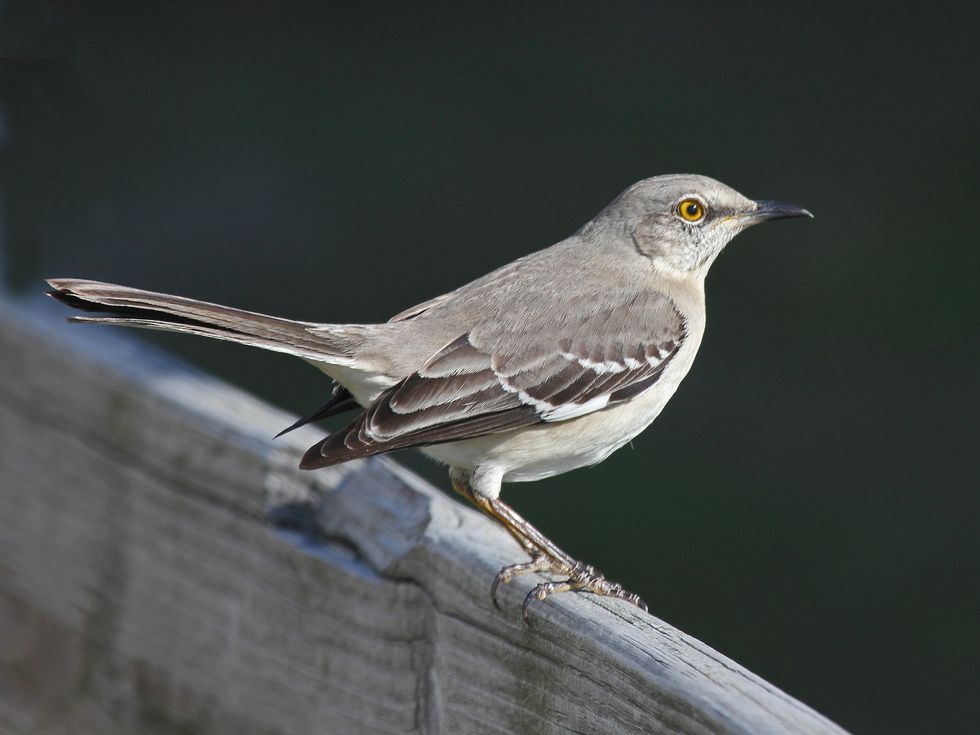It was a normal day. The sun shone happily from above as I traversed campus. I passed by a cluster of palm trees as I had done so many times before. That was my heinous mistake. Unaware of what danger awaited me, I continued walking down the path to the parking lot. Suddenly, I was ambushed by an aerial attack. Gray wings battered my head as raucous calls deafened my ears. A black beak pecked at me as I ran away. Blindly swatting at my assailant, I managed to make it to safety, a few yards away from the palm trees. The bird perched upon the light post glaring threateningly at me through yellow eyes.
My harrowing experience is not uncommon. Mockingbird across the country have attacked seemingly non-threatening people and pets. Sometimes, if their victim does not take the very clear hint to stay away, mockingbirds will claw and peck viciously to deter a future return from the intruder. This makes it difficult for joggers to complete their normal routine in the spring. The weather may be nice, but the mockingbirds are angry. Despite their aggressive nature, the state of Florida has declared this avian species the official state bird. Mockingbirds, as their name suggests, are known for their propensity to imitate other birds and sounds. From sirens to barking, these feathered creatures just don’t know how to be birds. Their songs are composed of other bird's musical shrills, the croaking of a chorus of frogs, and a myriad of man-made noises such as the ringing of doorbells. Mockingbirds are nature's ultimate remix artists. Like a playlist with wings, they can remember over 200 sounds and mimic them with extreme accuracy. They are fearless for their size and are not afraid to dive-bomb any opponent. There was even one incident where a mockingbird attacked a hawk – and won.
Mockingbirds may be a startling nuisance to us, but they are really just overly protective parents. The pair mated for life, might I add, take turns sitting on their eggs while the other spouse keeps watch for predators. They are absolutely dedicated to each other and their offspring. If anything wanders near the nest, they will attack. They have to protect their helpless fledglings. It’s their duty and instinct as parents. But, you don’t have to worry for too long because mockingbirds have a surprisingly short term of dependence, only about three weeks from egg to fledgling. After that, they are on their own as young adults that will one day grow up to terrorize another neighborhood.
So the next time you hear an out of place bark of a dog or chirp of a car alarm, look to the sky and run.






















